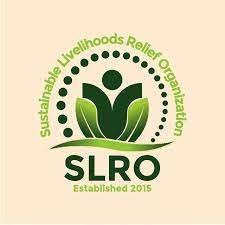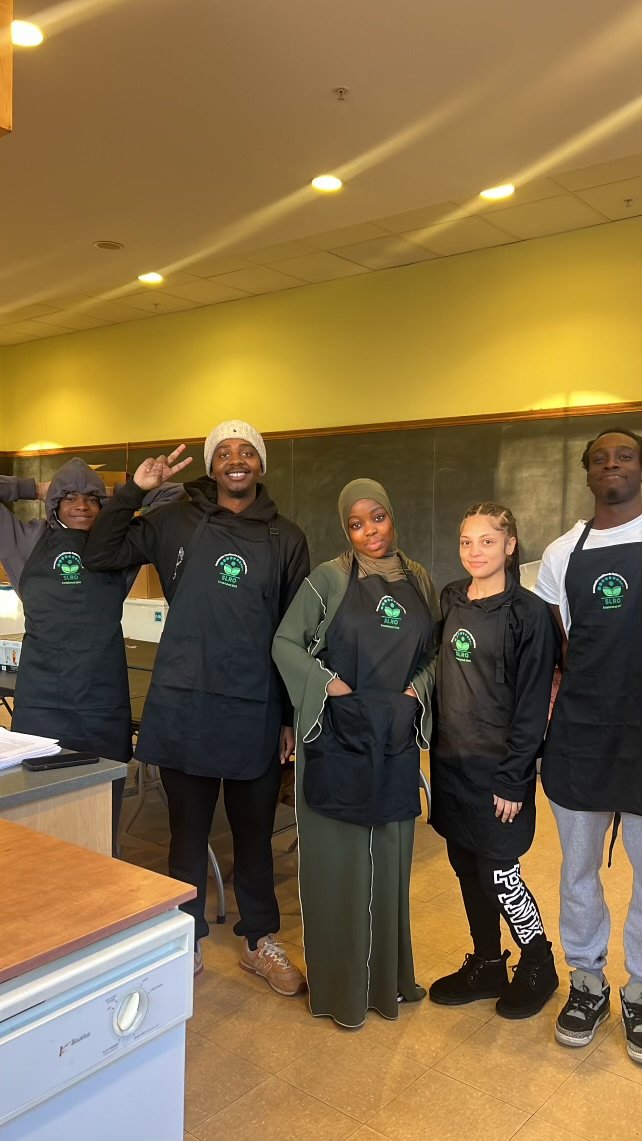From Soil to Table
Empowering Community Through Food, Farming, and Cultural Knowledge
Reconnecting to Land and Tradition
From Soil to Table is SLRO’s flagship program and a direct extension of our earliest farming work. It reconnects Somali Bantu families in Lewiston with the land-based practices and food systems that have sustained them for generations. Families grow traditional crops on shared plots, harvest together, and distribute produce through community networks—strengthening food access while restoring cultural routines and agricultural knowledge disrupted by displacement.
Oral-Based Nutrition and Food Safety Education
The program includes hands-on workshops delivered in Somali and Maay Maay that focus on nutrition, food safety, preservation, and seasonal cooking. Sessions are taught through demonstration and repetition—not written materials—so they are accessible to non-literate adults and guided by the way people already learn and teach in community. These workshops equip participants with the knowledge to prepare safe, balanced meals using ingredients that are familiar, accessible, and grown by the families themselves.
Cooking Classes with ZFD
In partnership with Zams Fine Dining (ZFD), SLRO offers monthly cooking classes that focus on both food safety and culinary confidence. Participants use fresh produce from the shared land plots to prepare full meals, rotating through prep, cooking, and plating stations. The classes are team-based and end with shared meals and group reflections. These sessions offer a structured but welcoming space where participants can build skills, share techniques, and experience the full cycle of growing, cooking, and serving food together.
Seasonal Rhythm and Responsive Design
From Soil to Table follows the natural agricultural cycle, with year-round activities ranging from early planting and in-language planning sessions to late-season harvesting and preservation workshops. Families shape the program through oral surveys, home visits, and in-language community forums. Their input drives changes in workshop topics, crop selection, and seasonal support—ensuring the program continues to reflect the real needs, strengths, and routines of the community.
Youth Sustainable Development
Mentorship, Movement & Belonging
Pathways to Confidence and Contribution
SLRO’s Youth Sustainable Development Program supports Somali Bantu and immigrant youth in Lewiston by offering consistent mentorship, peer learning, and skill-building opportunities. Youth ages 13–25 engage in programs designed to foster trust, confidence, and long-term community participation. Through creative workshops, leadership opportunities, and real-world exposure, the program offers pathways to explore identity, imagine future goals, and build lasting relationships rooted in mutual respect and shared experience.
Pathway to Dreams
This core initiative helps youth identify personal strengths and career interests through mentorship, goal-setting, and exposure to local opportunities. Workshops include career exploration, oral-based peer discussions, and visits from guest mentors. The program supports participants as they map out educational or vocational paths, connect with local institutions, and take concrete steps toward realizing their goals. All sessions are grounded in cultural relevance and delivered in accessible, relationship-based formats.
Unity in Action Initiative
Unity in Action uses sports and movement as a foundation for wellness, belonging, and social-emotional development. Youth participate in seasonal soccer tournaments, culturally responsive swim lessons, and team-building activities that promote discipline, confidence, and resilience. These gatherings offer more than physical activity—they are safe, affirming spaces where young people develop leadership, forge friendships, and strengthen their sense of identity and community.
Culturally Rooted Learning and Support
Programming is delivered by trusted community mentors who understand the lived experiences of the youth they serve. Sessions are oral, interactive, and designed around trust and consistency. Youth are engaged not only as participants, but as contributors—offering feedback, co-leading sessions, and shaping the content of future programming. Whether in the classroom, on the field, or at a community gathering, the goal is the same: to help young people feel seen, supported, and capable of shaping their own futures.
Adult Integration & Empowerment (AIEP)
Stability, Wellness & Cultural Care
Meeting Women Where They Are
The Adult Integration and Empowerment Program (AIEP) is designed to support Somali Bantu mothers and women navigating workforce systems, caregiving responsibilities, and social isolation. Many are non-literate, speak only Somali or Maay Maay, and have never accessed a program built around their language, pace, or learning style. AIEP responds with dignity-centered support that builds trust before training—and offers space to participate without pressure.
Culturally Rooted Job Readiness
Workshops focus on job readiness, entrepreneurship, and system navigation, taught through oral instruction, repetition, and visual tools. Participants learn how to complete applications, navigate interviews, manage money, and explore small business ideas—always in ways that reflect the real barriers and strengths in their lives.
Wellness and Connection
Shaah Iyo Sheeko (“Tea and Talk”) is a core part of AIEP. This peer-led wellness group offers space for rest, emotional reflection, and community healing. Mothers gather biweekly to talk, share tea, and engage in gentle, affirming activities that promote wellness from within. Outings—like visiting the ocean for the first time—create powerful memories and help women imagine life beyond daily routine.
Wraparound Support and Trust
Transportation, in-language facilitation, and home visits are built into the program—not add-ons. Facilitators are women from the community who understand the pressures of caregiving, isolation, and transition. Their presence helps participants stay engaged, supported, and seen—not just as learners, but as leaders in their families and communities.



